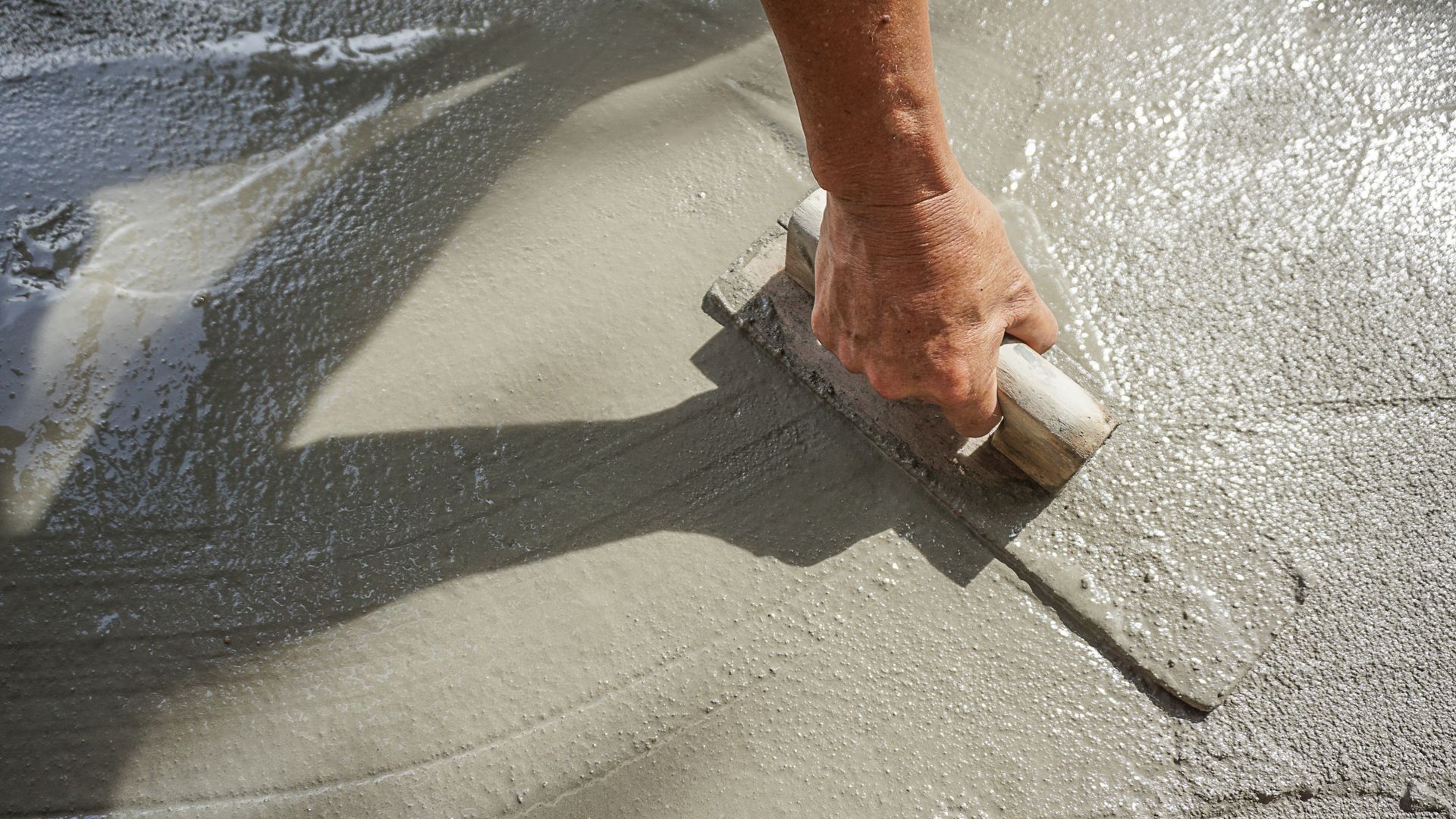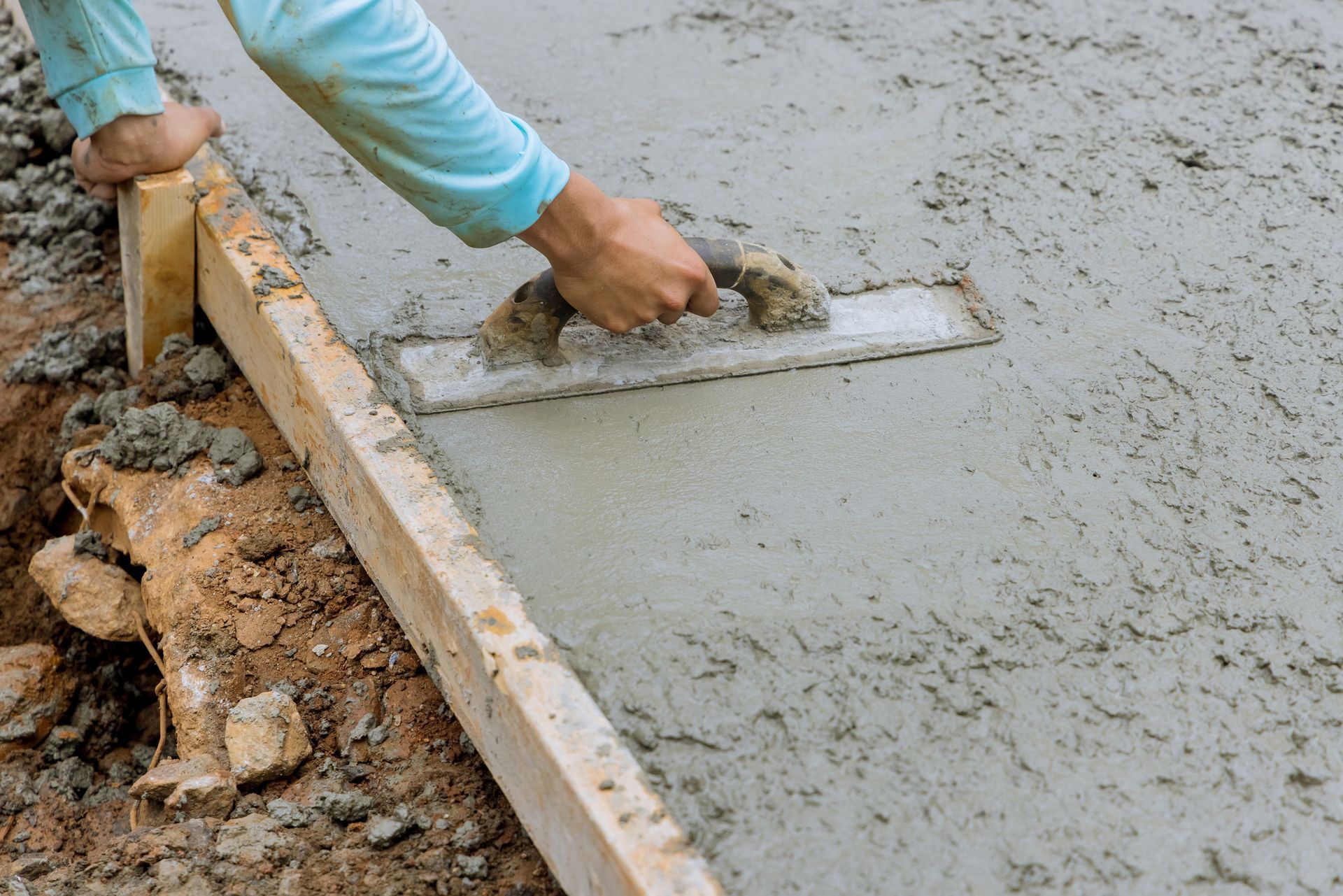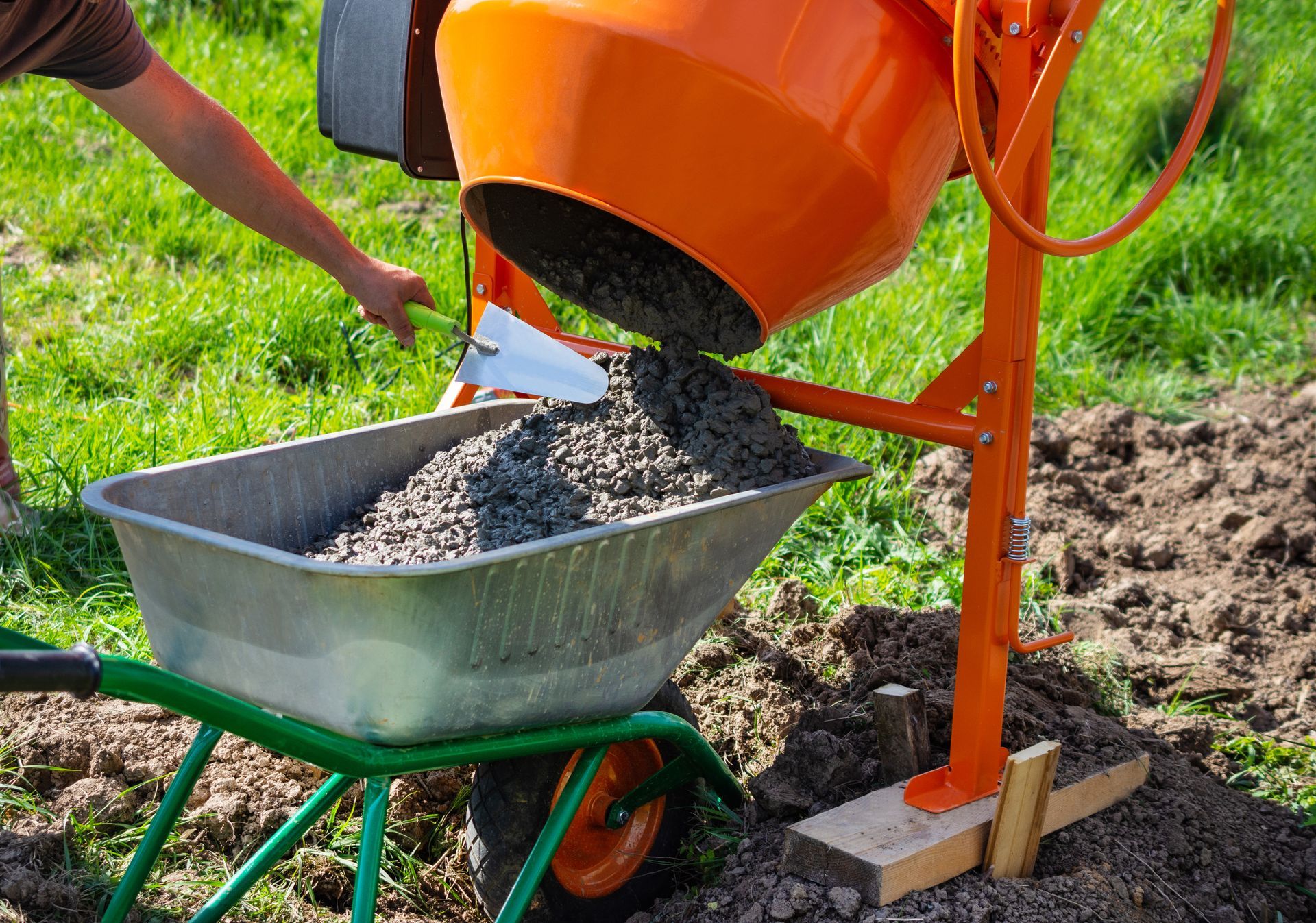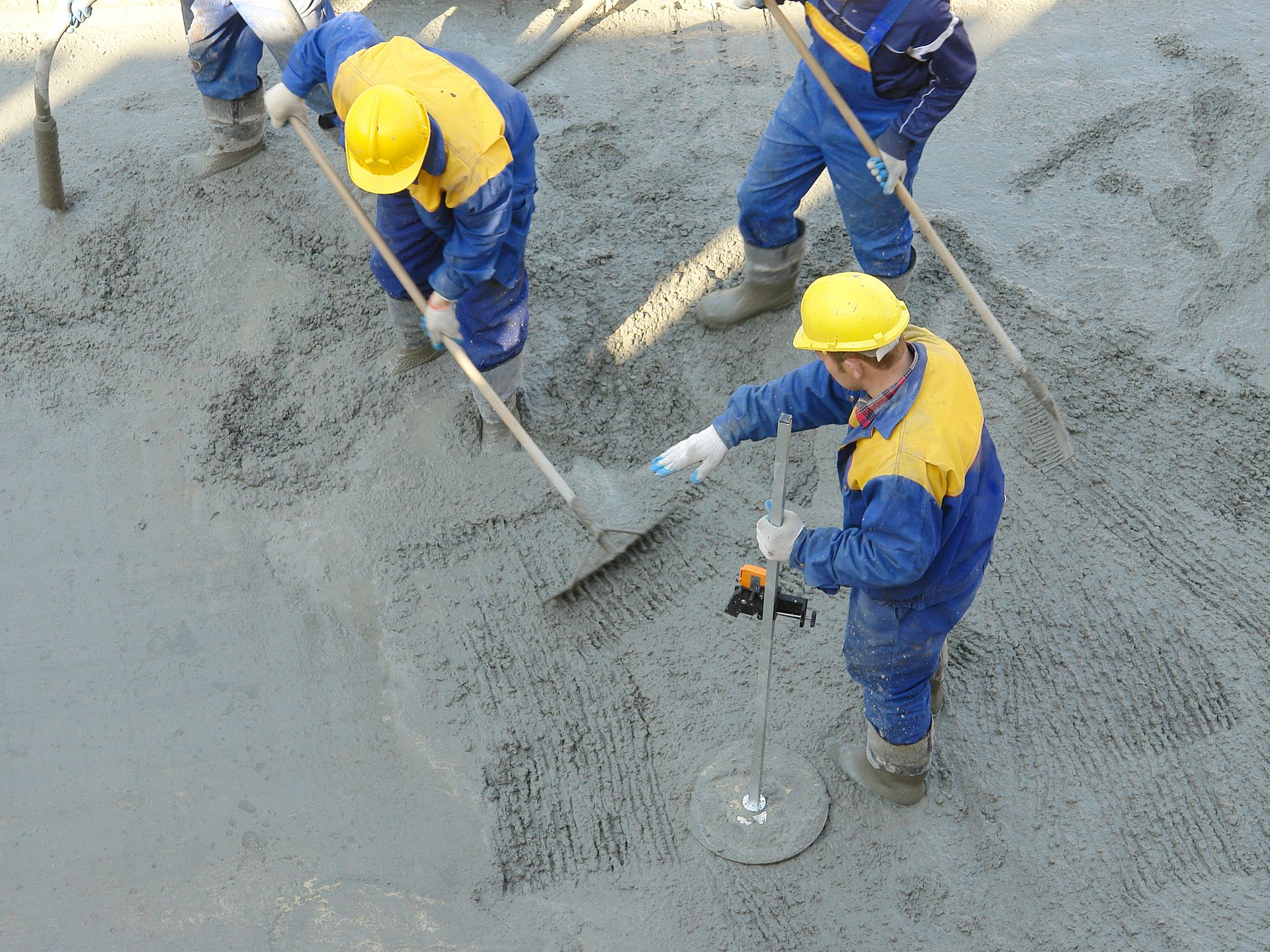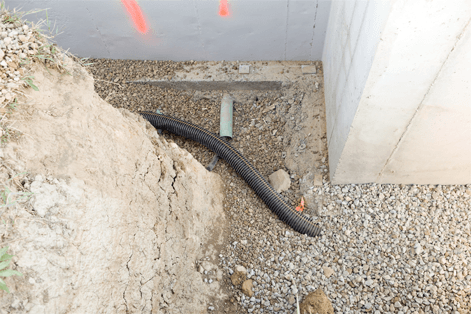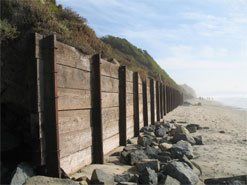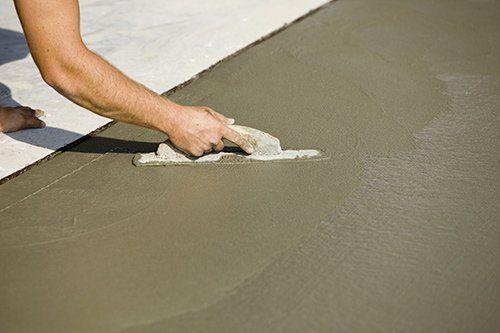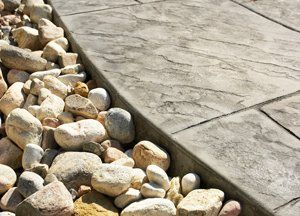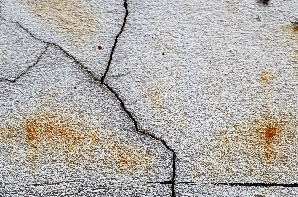HOW TO INSTALL AND MAINTAIN A CONCRETE DRIVEWAY SO IT LASTS FOR A LIFETIME
Southport Concrete Corp. • July 20, 2018
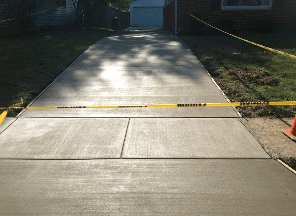
Concrete driveways are durable and attractive, and they provide a solid, reliable parking surface for vehicles. However, maximizing the lifespan and appearance of your concrete driveway depends upon making the right choices both before the concrete is poured and for many years after that, too.
Below, we’ve listed some important things to keep in mind in order to prevent premature concrete driveway failure.
GET AS MANY INCHES OF CONCRETE AS POSSIBLE ON A HARD, FLAT SURFACE
Concrete is incredibly strong against forces of compression, such as heavy vehicular traffic. However, it not nearly as resilient against bending forces, and that is why concrete driveways be as thick as possible. You need many inches of concrete to prevent the driveway from breaking or cracking due to uneven weight distribution.
A standard concrete driveway is four inches deep, but five or even six inches is preferable. Additional costs for the extra concrete are minimal, and the enhanced durability is worth the slight expense.
In addition, the driveway base should be adequately prepared to prevent a premature breakdown. The contractor should compact the base firmly and remove all underground weaknesses before pouring the concrete.
If there are any irregularities in the soil, such as tree stumps, sinkholes, or even normal soil variations (such as a transition from sand to clay), your contractor should remove these imperfections and fill the openings with an appropriate base material. Your concrete installation professional will know the best material to use and provide guidance and assistance.
REGULARLY SEAL YOUR CONCRETE DRIVEWAY
Even though you might think of concrete as completely impervious, it actually is capable of absorbing water and other liquids. The tiny grains of sand and cement are bound together in a matrix that also contains lots of tiny air pockets. These air pockets allow liquids to penetrate through these openings and saturate the concrete.
If you live in an area where freezing occurs in the winter, any water trapped inside these air pockets could turn into ice. Of course, when water freezes, it expands, and your driveway will bear the brunt of the growing ice particles. Over time, freezing can cause cracking as well as a surface-level problem called scaling, which is the sloughing off of the uppermost layers of concrete.
To prevent the destructive influence of freezing from damaging your concrete driveway, have it regularly sealed. During concrete sealing, a contractor applies a penetrating compound made from siloxane, silicate, or other silica-based chemicals. These chemicals prevent water from entering the concrete, but they permit the gritty surface of the concrete to remain exposed. The surface of the concrete needs to remain gritty so it’s not slippery for vehicles and pedestrians.
PROMPTLY SEAL CRACKS WHEN THEY APPEAR
Despite your best efforts, it is not realistic to expect concrete driveways to go completely without cracking over the course of their 30-, 40-, or 50-year lifespans. Some cracks are bound to appear no matter what, so don't despair if they show up in your driveway. If you address the problem quickly whenever cracks first appear, you can be assured of keeping your driveway in excellent shape for a long time.
Homeowners can easily seal small cracks in their own driveways. To do so, clean out the cracks with a wire brush and a shop vacuum or leaf blower. Avoid using water, since water might prevent the sealant from properly adhering. Next, use a caulk gun to insert a line of concrete caulk into the crevice. Push the caulk into the crack with a putty knife, and form a clean edge with the knife blade.
OBTAIN PROFESSIONAL ASSISTANCE WHEN NECESSARY
If you are planning to install a concrete driveway or replace an existing one, request the assistance of a qualified professional. A trained team of concrete layers can help you plan a driveway that will be the best one possible for your needs and will install it to last for a lifetime. In addition, if you have questions about maintaining an existing concrete driveway, be sure to contact your professional, as they will be able to help you with sealing and crack repair as well.
